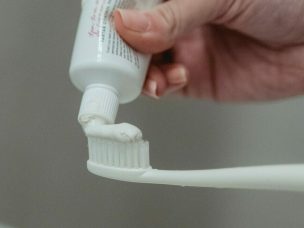Topical or nasal probiotics are not a good choice for treating allergic rhinitis.
Topical probiotics have been proposed as a therapeutic alternative for allergic rhinitis because they might influence the immune response towards a type-1 non-allergic profile.
This randomized placebo-controlled crossover trial, published in Clinical & Experimental Allergy, aimed to determine whether a topical/nasal probiotic assemblage (PA) delivery affects signs, symptoms, and quality of life in patients with allergic rhinitis in a nasal allergen challenge (NAC).
The topical/nasal treatment of a PA of Lactobacillus rhamnosus SP1, Lactobacillus paracasei 101/37, and Lactococcus lactis L1A or placebo was randomly assigned to 24 patients with seasonal allergic rhinitis for 3 weeks. A NAC series was added to the final week of each treatment period. The Mini-Rhinoconjunctivitis Quality of Life Questionnaire (Mini-RQLQ), the total nasal symptom score (TNSS), peak nasal inspiratory flow (PNIF), and fractional exhaled nitric oxide (FeNO) were the efficacy variables. Additionally, soluble analytes in nasal lavage fluids were observed to determine whether or not the PA had any pro-inflammatory effect in and of itself. Finally, MALDI-TOF analysis was used to determine if bacteria cultures obtained using swabs from the middle nasal meatus contained PA.
Taking the PA did not cause any nasal symptoms (cf. placebo). An innate immune response was seen during the PA run (compared to baseline); however, the levels of cytokines and mediators in the nasal lavage fluid did not vary from placebo except for IL-17 and IL-17A. Mini-RQLQ, TNSS, PNIF, and FeNO were unaffected by PA administration.
The study concluded that topical or nasal probiotics are not effective for treating AR. Moreover, PA elicited a limited innate immune response. However, topical/nasal treatment for 3 weeks with the PA composed of Lactobacillus rhamnosus SP1, Lactobacillus paracasei 101/37, and Lactococcus lactis L1A did not affect AR symptoms when compared to placebo.
Reference:
Mårtensson, A., Nordström, F. U., Cervin-Hoberg, C., Lindstedt, M., Sakellariou, C., Cervin, A., & Greiff, L. (2022). Nasal administration of a probiotic assemblage in allergic rhinitis: A randomised placebo-controlled crossover trial. Clinical and Experimental Allergy, 52(6), 774-783. doi:10.1111/cea.14098










